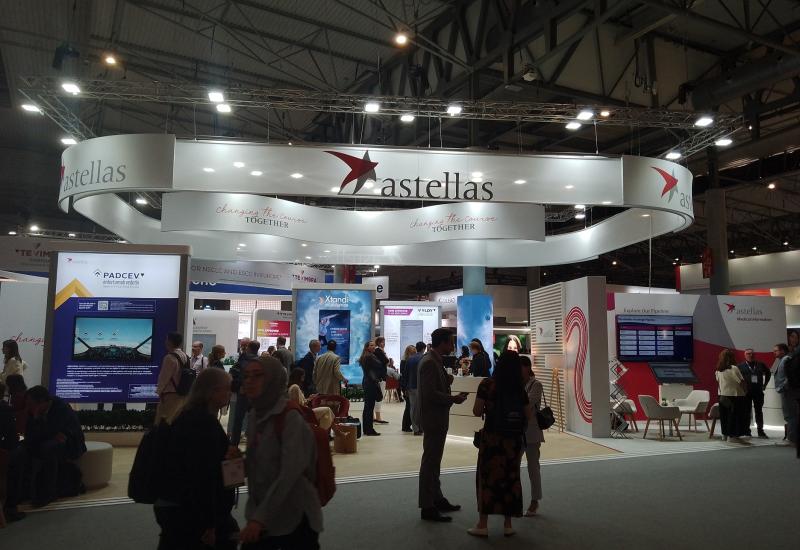
Blueprint still sees an oncology future
Despite a growing presence outside cancer, the company wants to stay true to its “DNA”.
Despite a growing presence outside cancer, the company wants to stay true to its “DNA”.

Blueprint Medicines started off specialising in targeted cancer therapies, but has been moving away from this vision recently. The group’s best-selling drug, Ayvakit, is increasingly being prescribed by allergists, the next project to hit the clinic will be in urticaria, and the company recently abandoned work on next-gen EGFR inhibitors.
However, Blueprint isn’t planning to turn its back on cancer completely, its chief business officer, Helen Ho, tells ApexOnco. “Oncology is still the DNA of our company. Our focus is on both allergy/inflammation on the one hand and oncology on the other.”
She professes to being “excited” about the group’s CDK2 inhibitor BLU-222. This target has become increasingly popular, with the likes of Pfizer, AstraZeneca and BeiGene all trying to find a therapy for HER2-negative breast cancer patients who’ve relapsed following a CDK4/6 inhibitor.
However, Blueprint has said that it hopes to partner BLU-222, possibly along with its other CDK2 efforts, which include a next-generation inhibitor, BLU-956, currently at the preclinical stage, as well as an as-yet-unnamed CDK2 degrader.
Why, if the company is hoping to stay in cancer, is it planning to license out one of its most advanced oncology pipeline projects?
“First-line breast cancer is a significant market – we’re talking a multibillion dollar market opportunity, but also big infrastructure is required,” replies Ho. Blueprint is therefore looking for a bigger pharma partner with the “expertise and infrastructure” to be able to reach more patients.
Data with a combination of BLU-222, Faslodex and Novartis’s CDK4/6 inhibitor Kisqali, from the Vela trial, are due this half; Blueprint will no doubt be hoping that these might help convince potential suitors.
Ayvakit in focus
Blueprint is also mindful of prioritising its resources, Ho adds. Much of the current focus is on the marketed PDGFRα/c-KIT inhibitor Ayvakit, for which the group recently raised peak sales expectations, from $1bn to $2bn.
Although Ayvakit was first approved for a genetic subset of gastrointestinal stromal tumours (GIST), it has since got the nod for first advanced, and later indolent, systemic mastocytosis.
It is the latter use that has driven the recent rise in sales, and an increasing number of allergists are now prescribing the medication, as these doctors are often the first point of call for patients with indolent disease. During the company’s fourth-quarter earnings call execs said allergists currently accounted for over 30% of Ayvakit prescriptions.
Nevertheless, Ho notes that haematology oncology specialists are still in the majority, and that over time Blueprint expects to see a “balance between the two”. Ultimately, it’s possible that the current $2bn Ayvakit sales estimate could be raised, she adds.
Next generation
Although Ayvakit is still going strong, Blueprint is also developing a next-generation project, the KIT D816V inhibitor elenestinib, for indolent systemic mastocytosis.
The idea behind elenestinib, as well as Cogent’s similarly acting rival project bezuclastinib, is to improve safety over Ayvakit, which has a warning for intra-cranial haemorrhage.
However, Ho notes that the 25mg Ayvakit daily dose used for indolent systemic mastocytosis – much lower than that used for both advanced disease and GIST – hasn’t been associated with this side effect.
This raises the question – why continue developing elenestinib?
Ho reckons that Blueprint can differentiate its next-gen project, but the company hasn’t yet given details on how it plans to do so. Investors are also awaiting more information on the design of the project’s pivotal study, part 2 of the Harbor trial, which is due to start in the second half of 2024.
“We don’t believe one drug is going to do everything for every patient,” Ho concludes. The appetite for a follow-on could become clearer in the coming months and years, but for now Blueprint is making the most of Ayvakit, and is surely mindful of not cannibalising this cash cow.
2020













